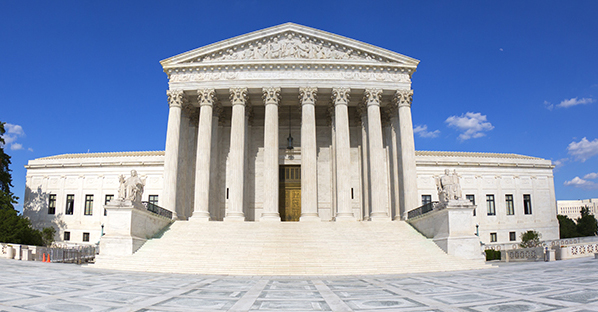U.S. Supreme Court Agrees to Hear Arguments in Janus v. AFSCME
Pioneer Institute Signed onto Amicus Brief Urging Court to Accept Case
BOSTON – The U.S. Supreme Court has agreed to hear arguments in Janus v. AFSCME, a case involving an Illinois public employee who sued the defendant claiming that being compelled to pay an agency fee violates his First Amendment right to freely express dissent.
Pioneer Institute, through its public interest law initiative PioneerLegal, signed onto an amicus brief at the invitation of the Pacific Legal Foundation that supported Janus’s petition asking the Supreme Court to hear his agency fee case.
“We recognized that many observers believed the time was right for the Supreme Court to accept the case as its key issues – particularly those based on First Amendment claims – had been percolating in the federal courts for some time,” said Pioneer Institute and PioneerLegal Senior Fellow in Law & Public Policy John Sivolella. According to the Administrative Office of the U.S. Courts, the Supreme Court accepts 100-150 of the more than 7,000 cases it is asked to review annually.
The outcome of the case may also have a local impact. A group of Massachusetts educators has petitioned the commonwealth’s Supreme Judicial Court (SJC) to hear a case challenging payments they’re compelled to make to unions as a condition of employment. The SJC will likely delay its ruling pending the outcome of the Janus case.
About Pioneer Institute and PioneerLegal
Pioneer Institute is an independent, non-partisan, privately funded research organization that seeks to improve the quality of life in Massachusetts through civic discourse and intellectually rigorous, data-driven public policy solutions based on free market principles, individual liberty and responsibility, and the ideal of effective, limited and accountable government.
Pioneer focuses on achieving policy goals in four issue areas: expanding access to high-performing schools; increasing affordable, high-quality healthcare options; ensuring that government services are efficient, accountable and transparent; and growing prosperity and economic opportunity.
PioneerLegal, as the public-interest law initiative of Pioneer, utilizes a legal-based approach to work to change policies that adversely affect the public interest in Pioneer’s core policy areas. PioneerLegal’s substantive work is consistent with the mission of Pioneer as it clearly develops and promotes its brand as a public-interest law initiative.
Related Posts:








